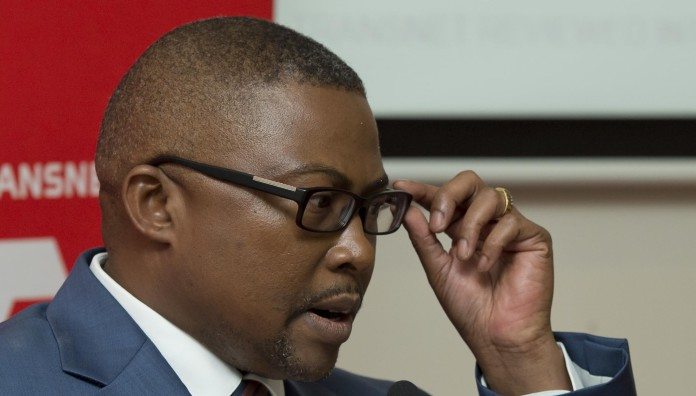
Correction: Article adjusted to show Siyabonga Gama was not in defiance of Transnet board.
SIYABONGA Gama insisted he was still group CEO of Transnet.
Popo Molefe, chairman of Transnet, said in a statement on September 27 that the board’s relationship with Gama had broken down, and that Gama had been asked to leave his office whilst an investigation into the purchase of 1,068 locomotives from China was investigated.
“The board of Transnet has today served Mr. Siyabonga Gama with a letter informing him of the board’s intention to terminate his employment as group Chief Executive Officer (GCEO) of Transnet SOC Ltd,” said the statement. “The reasons provided to him by the board relate to alleged serious violations of his financial, procurement and fiduciary responsibilities …”.
“My name is Siyabonga Gama and I am the group CEO of Transnet,” said Gama in response to a question posted after a presentation at the Joburg Indaba mining conference, held in Johannesburg today.
In respect of the purchase of locomotives, Gama said it was “the correct decision” to order the items. “We actually needed 1,400 locomotives. For people who are as young as I am, the last time Transnet bought locomotives was about 1988. The average life of a locomotive for a world class freight company is about 12 years,” he said.
Criticism that the locomotives ought not to have been purchased was an assumption “made in hindsight”, said Gama. “Always with the benefit of hindsight people become very bright. We looked at the trajectory [of the economy] and decided this is what we require by 2020”. Critics were quick to point out when Transnet failed to make minerals deliveries, he said.
The company’s mandate was to invest counter-cyclically. In 2015, the coal and iron ore prices plummeted about 45% and 60% respectively. “People at this point didn’t want to make any investments, but there will be an epicycle and you want to be invested for that ahead of demand,” he said.










